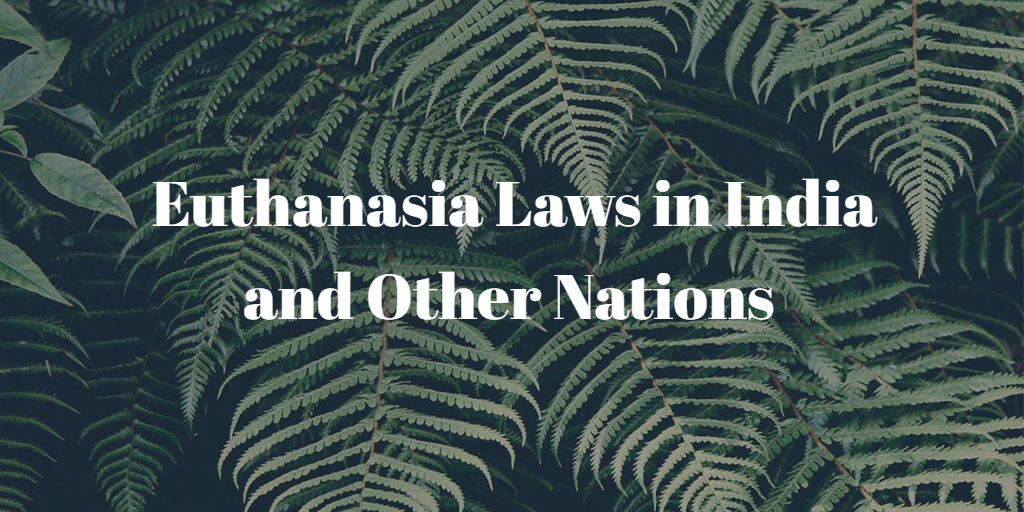Euthanasia Laws in India and Other Nations

Table of Contents
Euthanasia in India
Euthanasia Laws in Other Nations
Ethical Considerations and Debates
1. Euthanasia in India
In India, euthanasia is generally prohibited. However, the Supreme Court of India, in a landmark judgment in 2011, legalized passive euthanasia under specific circumstances. Passive euthanasia refers to the withdrawal or withholding of medical treatment with the intention of causing the patient's death.
According to the Supreme Court's guidelines, passive euthanasia can only be permitted when:
The patient is in a persistent vegetative state (PVS) or has an irreversible medical condition with no hope of recovery.
The decision to withdraw or withhold treatment is made in the patient's best interest, with the consensus of the medical team and the patient's family.
The decision is approved by a high court, following a thorough examination of the patient's medical records and consultation with a panel of experts.
Active euthanasia, which involves the deliberate administration of lethal substances to end a patient's life, remains illegal in India.
2. Euthanasia Laws in Other Nations
Euthanasia laws vary significantly across the world, with some countries permitting the practice under certain conditions, while others maintain a complete ban. Here are some examples:
The Netherlands: Both active euthanasia and physician-assisted suicide are legal in the Netherlands, provided that strict guidelines are followed. The patient must be experiencing unbearable suffering with no prospect of improvement, and the decision to proceed with euthanasia must be voluntary, well-considered, and persistent.
Belgium: Belgium legalized euthanasia in 2002 under specific conditions. The patient must be experiencing constant, unbearable physical or mental suffering resulting from a severe and incurable disorder. They must also give voluntary, informed, and repeated consent to euthanasia.
Canada: Medical assistance in dying (MAID) is legal in Canada for patients with a grievous and irremediable medical condition. Patients must be mentally competent adults, have a serious and incurable illness, disease, or disability, and be in an advanced state of irreversible decline in capability.
United States: Euthanasia laws in the United States differ by state. Physician-assisted suicide is legal in some states, such as Oregon and Washington, under the Death with Dignity Act. However, active euthanasia remains illegal across the country.
3. Ethical Considerations and Debates
The subject of euthanasia is fraught with ethical and moral debates. Supporters of euthanasia argue that individuals have the right to die with dignity and control over their own bodies, especially when faced with terminal illnesses or unbearable suffering. They believe that euthanasia can provide relief from suffering and is a compassionate response to patients' situations.
On the other hand, opponents of euthanasia raise concerns about the sanctity of life and the potential for abuse of the practice. They argue that legalizing euthanasia could lead to a slippery slope, with potential consequences such as the devaluation of human life and the normalization of killing as a solution to suffering. Some critics also point to the importance of palliative care as an alternative to euthanasia, emphasizing the need to improve end-of-life care rather than resorting to hastening death.
Conclusion
Euthanasia laws and practices differ significantly around the world, with some countries allowing the practice under strict conditions and others maintaining a complete prohibition. In India, passive euthanasia is permitted in specific circumstances, while active euthanasia remains illegal. The subject of euthanasia raises complex ethical and moral questions, with ongoing debates surrounding individual autonomy, the sanctity of life, and the potential risks and benefits of legalizing the practice. Understanding the legal landscape and the ethical considerations surrounding euthanasia can contribute to a more informed and nuanced discussion of this challenging issue.


